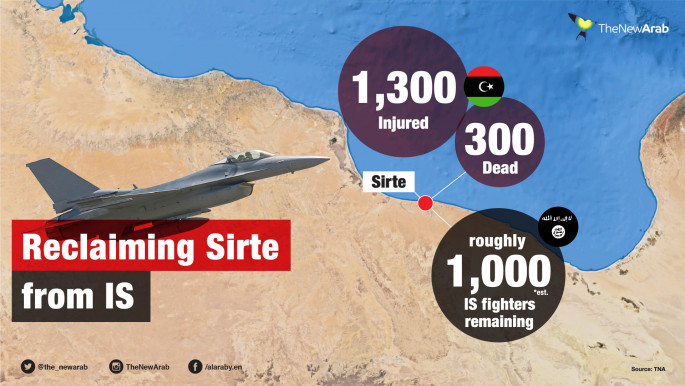
Libya's oil woes threaten to plunge country into crisis
Libya's unity government have made an urgent call for its allied fighters to stiffen their resolve after loyalist forces lost control of two vital oil terminals to rival eastern militias.
The announcement came after militias loyal to the unrecognised Tobruk government seized two key export facilities. It happened just as Libya was preparing to ship out oil and desperately bring in cash to the war-torn country.
Black gold coast
The internationally-recognised unity government in Tripoli called for its forces to "protect and defend" the ports against a "flagrant aggression" of Libyan sovereignty.
The two Mediterranean ports the unity have government have lost are part of Libya's "oil crescent", and seen a way of the Government of National Accord gaining further legitimacy and much needed cash.
Petroleum guards loyal to Tripoli lost control of al-Sidra and Ras Lanuf - which are capable of handling 700,000 barrels a day - to forces allied to renegade General Khalifa Haftar.
Haftar is one of Libya's most well-known and powerful figures, and was previously a leading commander in the Libyan army under former leader Muammar Gadaffi.
He soon became one of the dictator's fiercest critics after finding refuge in the US.
Now he is allied with the more secular-leaning Tobruk government in the east of the country.
Ahmad Mesmari, a spokesman for Haftar's forces, said Zuwaytina oil terminal was not yet under their control.
Hatem El-Ouraybi - a spokesman for the eastern authority - told AFP the attack was aimed at "regaining full control of the oil crescent".
"The government calls on all the people of the oil crescent area - including those who were in the oil installations guards - to join the army or return to their homes," he said.
But the GNA on Facebook urged all "military forces [to] protect and defend the oil installations and terminals and to carry out their military and national duties bravely and without hesitation".
The GNA also called on Haftar's forces to "immediately withdraw from all the sites they have attacked".
 |
| [click to enlarge] |
Libya's oil terminals had been closed for months due to threats from the Islamic State group to the west.
They had been expanding their territories from Sirte, its former stronghold on the Mediterranean coast.
Buffer zone
Recently, Tripoli forces have launched a successful offensive on the IS bastion and have the miltants holed up in a small section of Gadaffi's hometown with a final assault imminent.
This had led to hoped that a contained or eliminated IS would mean oil - which the Libyan economy is almost completely reliant on - will be able to flow again.
In late July, the oil installation guards announced the reopening of the two ports after an agreement with the unity government to resume oil exports.
Meanwhile, Haftar's forces have also been fighting jihadist forces in the second city of Benghazi to the northeast of the oil-rich crescent.
Frustrated UN Libya envoy Martin Kobler is now concerned with the recent turn of events after things in Libya appeared to be heading in the right direction.
"Oil belongs to ALL Libyans," he tweeted. "Conflicts can only be solved through dialogue, not violence. Urge all parties to sit 2gether."
The seizure of the terminals by the unrecognised government will be a major blow for Libya.
"Unless there is a very quick mediation, this could lead to conflict and a final blow to Libya's oil industry," Mattia Toaldo, a Libya expert with the European Council on Foreign Relation, told AFP.
Oil is Libya's main natural resource with reserves estimated at 48 billion barrels, the largest in Africa.
Since 2010, production has dropped from 1.5 million barrels per day to just 200,000.
Libya's National Oil Company has also been divided by the war forming two rival branches - one allied to Tripoli and one with Tobruk.
Now that the IS threat from Sirte has been reduced there is no buffer between them and Haftar's army in the east making it more likely that the two sides will "clash again", Toaldo said.
The pro-GNA military command is based in the city of Misrata.
The attack on the ports aimed to "take advantage of Misrata's exhaustion after Sirte" and "undermine any negotiation on the future of the GNA", Toaldo said.
Agencies contributed to this story.





 Follow the Middle East's top stories in English at The New Arab on Google News
Follow the Middle East's top stories in English at The New Arab on Google News


